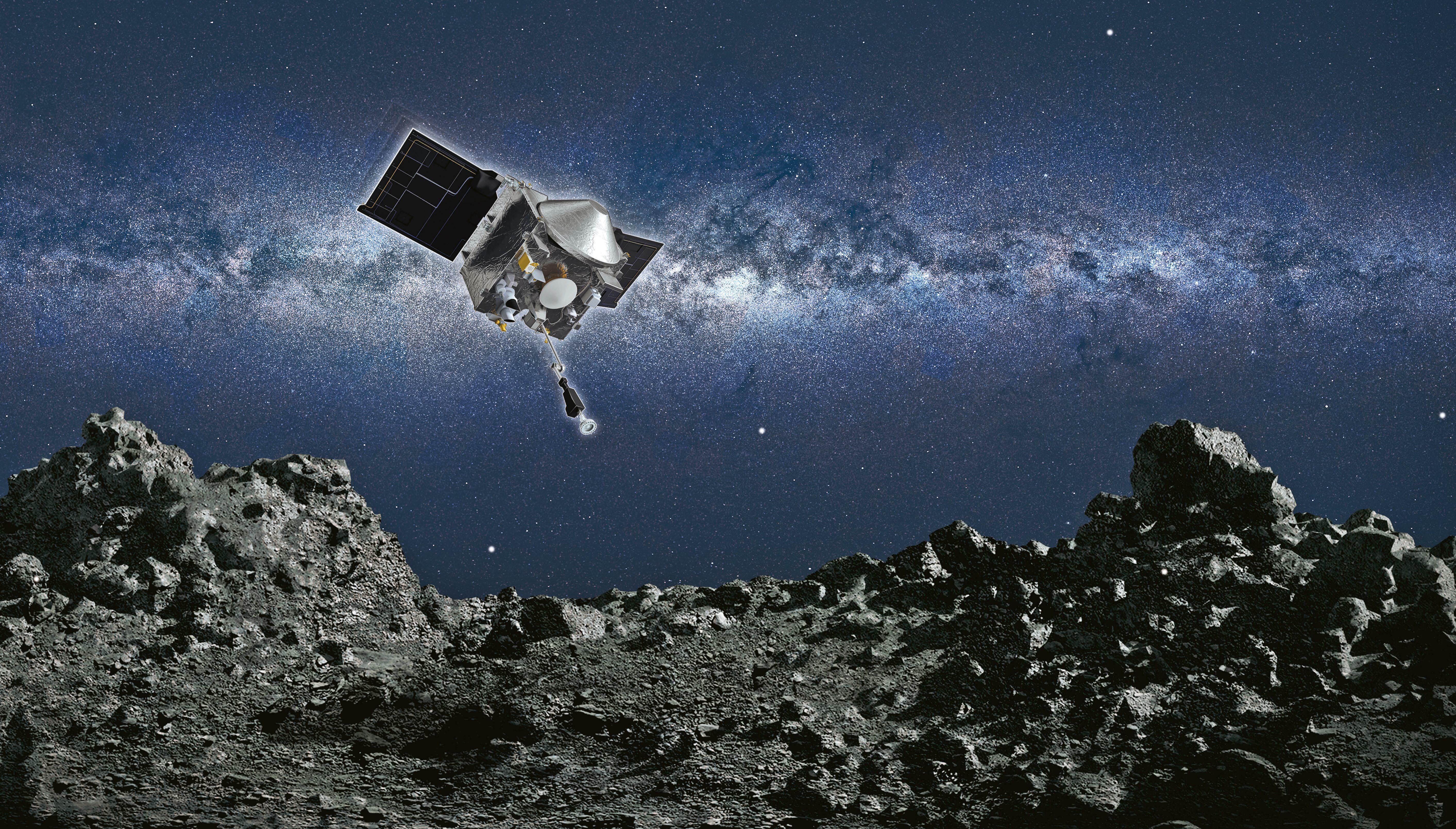Intentar ORO - Gratis
New frontiers reached in space
The Week Junior Science+Nature UK
|Issue 66
It's been an important few months for space exploration.
-

From a historic Moon landing to samples from a distant space rock being returned to Earth, the past few months have seen a series of remarkable milestones in space exploration.
On 23 August, India became the first country to land a spacecraft near the Moon’s south pole. The Chandrayaan-3 mission consisted of a lunar lander, named Vikram, and a rover called Pragyan. Shortly after Vikram landed on the Moon – making India only the fourth nation to achieve such a feat – Pragyan rolled out on to the surface to start its task. The rover will study the south pole, searching for signs of water that could one day support a human base on the Moon. Just over a week later, on 2 September, India launched its first mission to the Sun. Aditya-L1 will orbit the Sun, carrying out studies.
Esta historia es de la edición Issue 66 de The Week Junior Science+Nature UK.
Suscríbete a Magzter GOLD para acceder a miles de historias premium seleccionadas y a más de 9000 revistas y periódicos.
¿Ya eres suscriptor? Iniciar sesión
MÁS HISTORIAS DE The Week Junior Science+Nature UK

The Week Junior Science+Nature UK
Make square bubbles
Build a frame to capture straight-edged bubbles.
1 mins
December 2025

The Week Junior Science+Nature UK
Smart scientists win big
The Nobel Prize rewards some of the world's brightest minds in science - as well as literature, economics and peace for their discoveries.
1 min
December 2025
The Week Junior Science+Nature UK
Build a memory game
Test the power of your mind with this colour-changing brain game.
2 mins
December 2025

The Week Junior Science+Nature UK
Celebrating a hero
Remembering Dr Jane Goodall, who devoted her life to the study and conservation of chimps.
2 mins
December 2025

The Week Junior Science+Nature UK
Wildlife watch
Jenny Ackland discovers the wonders of nature you can spot this month.
2 mins
December 2025

The Week Junior Science+Nature UK
Make mini cottage pies
Cook up a winter warmer that will feed your whole family.
1 mins
December 2025
The Week Junior Science+Nature UK
HOLY ROLLER
The Kiruna Church was once voted Sweden's most beautiful pre-1950 building.
1 min
December 2025

The Week Junior Science+Nature UK
BIONIC BEINGS
Patrick Kane welcomes you to a future of superhumans, where people and robots combine.
4 mins
December 2025

The Week Junior Science+Nature UK
The world goes green
Renewable energy produced more electricity worldwide than coal in the first half of 2025, according to a report from research group Ember.
1 min
December 2025
The Week Junior Science+Nature UK
STORM IN HEAVEN
This photograph shows an enormous thunderstorm cloud glowing pink against a deepening blue sky. Called Eruption in the Sky, it was the winner in the young category of the Standard Chartered Weather Photographer of the Year Competition 2025, run by the Royal Meteorological Society.
1 min
December 2025
Translate
Change font size

